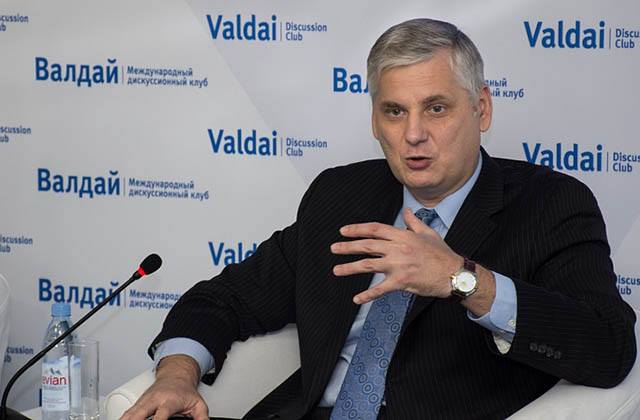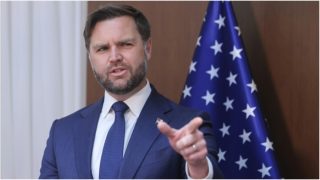Moscow’s interest toward Armenia’s domestic policy developments isn’t personified: Markedonov

“I don’t consider that Armenia’s internal agenda is the Kremlin’s main issue,” Sergey Markedonov, Director of the Department for Problems of Ethnic Relations at the Institute for Political and Military Analysis in Moscow, PhD in Historical Sciences, columnist, politician, expert of Russian Council on Foreign Affairs, told reporters today, reflecting to upcoming parliamentary elections in Armenia and Moscow’s role in it.
Markedonov stated that scenarios, frequently circulated in the Caucasian region, refer to which extent the countries are able to independently decide their political course, how independent and sovereign they are.
“I can’t point out a country, where there is absolute independence. As Russia is an absolutely independent country, isn’t it? There is a factor of Armenia’s dependency on Russia, this is neither good nor bad. Meanwhile I don’t consider that Armenia’s internal agenda is the Kremlin’s main issue, and that the Kremlin does nothing and desires victory of this or that political party. First and foremost, the Kremlin is interested in how relations with Russia will have a positive effect,” the expert said.
According to the latter, there is certain concern referring to color revolution. He considers they seem a bit exaggerated. He believes this particularly refers to developments of electromaidan or “Sasna Tsrer”, when a few Russian publicists and reporters compared it to color revolution. However, according to Markedonov, they should realize that traditions of street policy are solid in Armenia.
Moreover, in his words, that tradition in Armenia was prior to appearance of “color revolutions” expression. “Those moments will be in Armenia despite some people will like it or no. This is a small country, where space between the authorities and the society isn’t so big, as in my country or the USA,” Markedonov said.
Russian political scientist stated that there are clear political realities.
“If someone comes to power, who studied in Glendale, then continued in Harvard, may not even know Russian, but will work for 2-3 days in president’s or PM’s office and will understand that it won’t succeed without Russia. A vivid example is Levon Ter-Petrosyan—absolute anti-Soviet figure, USSR collapse locomotive, and etc., but a person, who made Armenia Russia’s strategic partner. In this sense Armenia’s experience is special. Armenia separates Russian from the Soviet one. They should succeed to do it, i.e. in Moscow there is interest toward everything that is taking place in Yerevan, however, it isn’t personified, but systemic,” Markedonov said.
By Araks Martirosyan

























